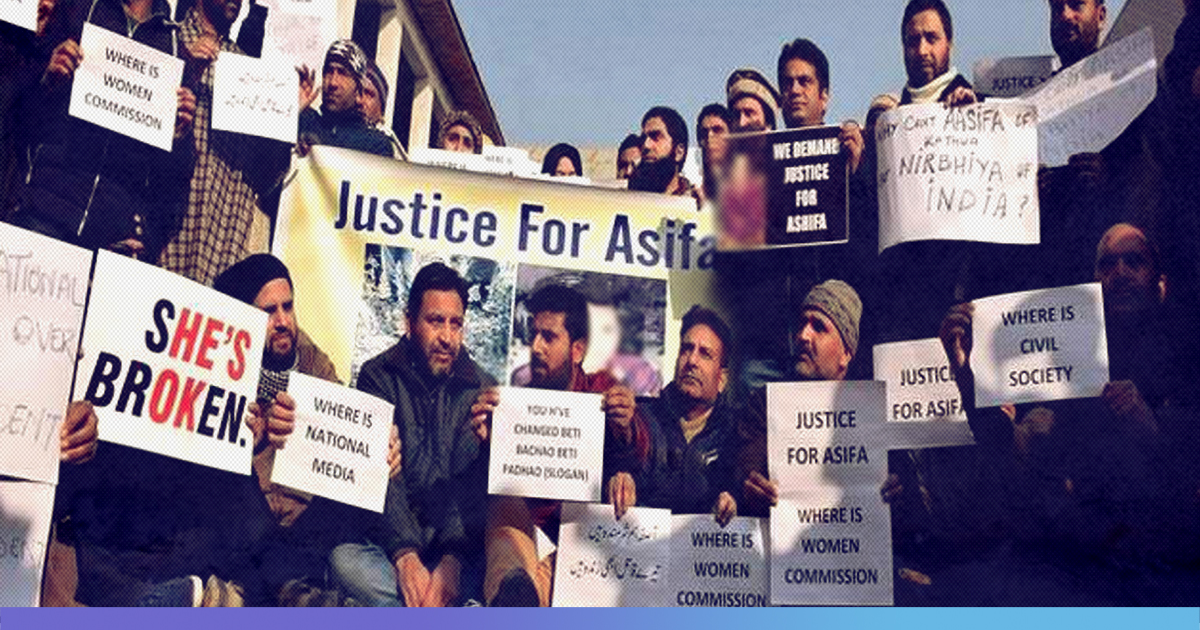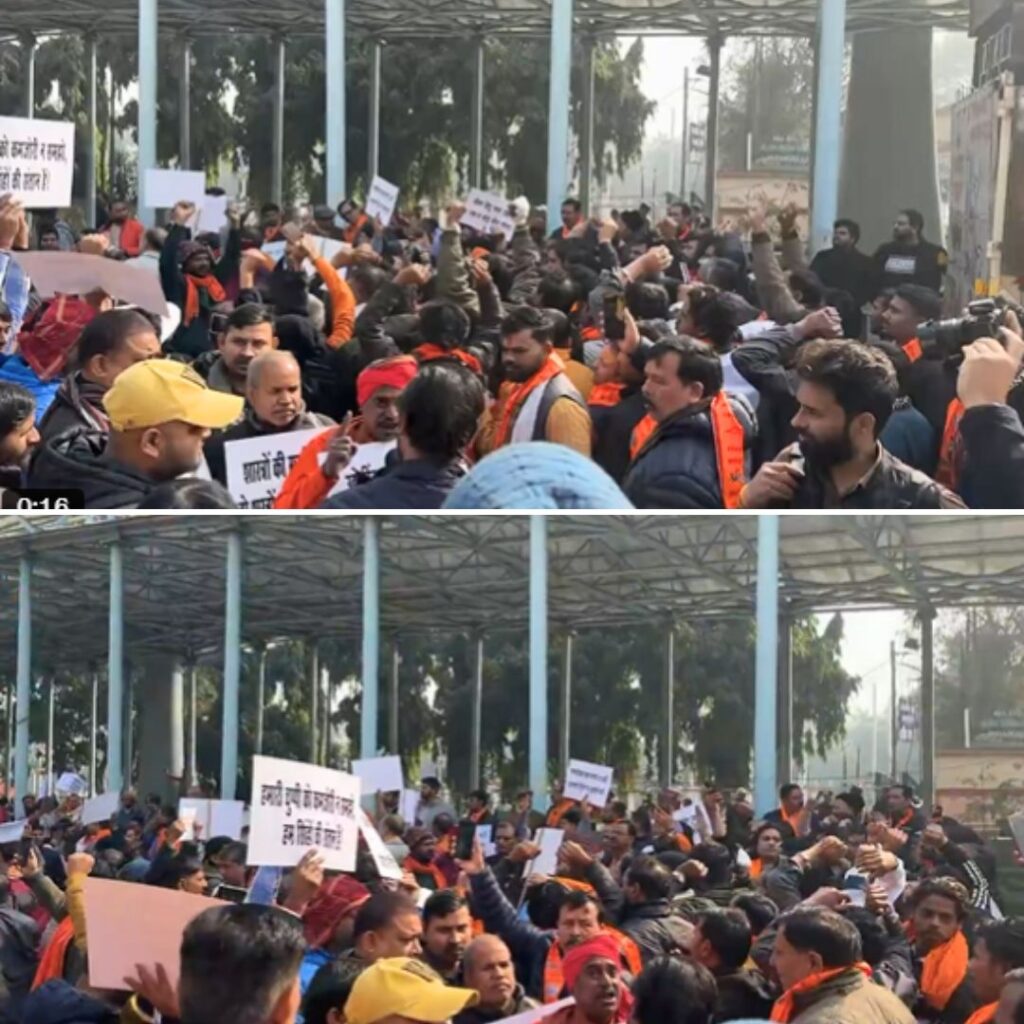After an application was filed by key witnesses of the Asifa Bano case, where they alleged that they were tortured by the Special Investigation Team (SIT), Judicial Magistrate Prem Sagar on Tuesday (22 October, 2019) gave the direction to Senior Superintendent of Police (SSP) of Jammu to register an FIR against the six SIT officers.
Sachin Sharma, Neeraj Sharma and Sahil Sharma, who were witnesses in the case, filed their application with the help of Advocate Ankur Sharma.
A local Jammu court directed the registration of an FIR against the then SSP R K Jalla (now retired), ASP Peerzada Naveed, Deputy Superintendents of Police Shetmbari Sharma and Nissar Hussain, Sub-Inspector Urfan Wani, and Kewal Kishore of crime branch of police, and asked the SSP (Jammu) to report compliance by the next date of hearing on the 11th of November.
The Judicial Magistrate’s order, issued for the filing of an FIR against the six SIT officers, read:
“Considered the argument of counsel for the applicant (witnesses) and order of the Supreme Court and the High Court of Jammu and Kashmir. As per the affidavit of the counsel for applicant no proceedings are pending for disposal in the apex court with regard to the case in question.”
It is important to note here that the trial was shifted to Pathankot in Punjab on the order of the Supreme Court after lawyers in Jammu attempted to prevent the submission of the charge sheet in court.
A day-to-day in-camera trial for the case was held for a year, amidst extremely tight security, unprecedented for any case of this nature.
The order further read, “From the gist of the complaint cognizable offences are made out against the non-applicants (officers) herein. Therefore, application of the applicant under section 153 (3) CrPC is allowed with the direction to SSP Jammu to register FIR against the non-applicants under relevant provisions of law and report compliance by next date of hearing on November 11.”
The Case
Earlier this year, in June, District and Sessions Judge Tejwinder Singh sentenced the three main accused to life imprisonment, while awarding five years in jail to three others for the destruction of evidence. Sanji Ram the caretaker of the temple where the crime took place, Special Police Officer Deepak Khajuria, and Parvesh Kumar a civilian, were convicted under the sections of the Ranbir Penal Code (Jammu and Kashmir State Ranbir Penal Code or RPC was the main criminal code applicable in the Indian state of Jammu and Kashmir) pertaining to criminal conspiracy, murder, gangrape and destruction of evidence.
Two police officials – Sub Inspector Anand Dutta and Head Constable Tilak Raj, and a Special Police Officer Surender Verma were convicted for destruction of evidence. As per the SIT officers, they had washed Asifa’s bloodied and mud-spattered clothes before sending them to a forensic lab.
The investigating team had found out that Asifa was confined in a local temple for several days and given sedatives that kept her unconscious. Their chargesheet alleged that she was “raped for days, tortured and then finally murdered”. She was strangled to death by her own scarf and then hit on the head twice with a stone, therefore bludgeoned to death.
The chargesheet also said that the abduction, rape and killing of the child was part of a carefully planned strategy to remove the minority nomadic community from the area.
When Asifa’s case came into light, leading to the arrests of the accused and rapists, it sparked communal protests across the Jammu region, where lawyers tried to stop the police from entering the court to file a chargesheet and two ministers from the Bharatiya Janata Party (BJP) attended a rally in support of the rapists.
The BJP later had to sack two of its state ministers, Chowdhury Lal Singh and Chander Prakash Ganga, for participating in the rally.
At that time, the BJP was ruling the state in a coalition with the regional People’s Democratic Party (PDP).
During her funeral, the Gujjar community to which she belonged, wanted to bury Asifa in a graveyard which stood on the land they had purchased a few years ago. But when they arrived there, they were surrounded by Hindu right-wing activists who threatened them with violence if they continued with the burial.
They were forced to walk seven miles to bury her in another village.
Also Read: Life Imprisonment To 3 For Rape & Murder Of 8-Yr-Old Kathua Victim












